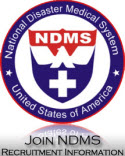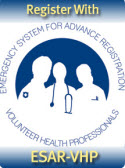U.S. Department of Health & Human Services
Email Updates ![]() Font Size
Font Size 
 Print
Print  Download Reader
Download Reader 
HHS Response to 2011 Earthquake/Tsunami Disaster
The United States stands ready to help the Japanese people in this time of great trial. The friendship and alliance between our two nations is unshakeable, and only strengthens our resolve to stand with the people of Japan as they overcome this tragedy.
The hearts of employees throughout the U.S. Department of Health and Human Services remain with the people of Japan at this tragic time. HHS stands ready to provide public health and medical support to the government of Japan. HHS provides public health and medical personnel and medical equipment and supplies to augment the state and local response and to assist with long-term recovery efforts. At the request of another nation overwhelmed by a disaster, HHS may provide disaster response support internationally as well. HHS did so most recently after the earthquake in Haiti. HHS divisions are coordinating with partners from federal and state government agencies to address public concern within the United States about any release of radiation from the damaged nuclear power plants in Japan reaching the U.S. coast. Although at this time no public health risks are expected in the United States, some West Coast states are monitoring air quality as a precaution. U.S. Government Response Information (USA.gov) U.S. Government Response Information en español (GobiernoUSA.gov) HHS Resources and General InformationAll Embassy Updates (U.S. Embassy - Tokyo) Read the latest situation report on HHS activities (PHE.gov) Information for Travelers (Centers for Disease Control and Prevention) Resources to help cope with a traumatic event (Substance Abuse and Mental Health Services Administration) Psychological first aid for first responders (Substance Abuse and Mental Health Services Administration) Hand Hygiene after a Disaster (Centers for Disease Control and Prevention) Health and Safety Concerns for All Disasters (Centers for Disease Control and Prevention) Returning home after a disaster (Centers for Disease Control and Prevention) Food Safety in an Emergency (FoodSafety.gov) West Coast and Alaska Preparedness and Pacific Tsunami Information and Resources for Army Civilians for the Ongoing Situation in Japan (US Army) Radiation Health SafetyStatement from Agriculture Secretary Vilsack on Tragedies in Japan, Effects on U.S. Food Imports (USDA) Questions about radiation safety regarding food and medical products (FDA) The Nuclear Regulatory Commission (NRC) held a meeting on the NRC response to the ongoing event in Japan, on Monday, March 21, 2011, at 9:00 a.m., EDT. The agenda, slides, and webcast are at http://www.nrc.gov/reading-rm/doc-collections/commission/tr/2011/. Nuclear Regulatory Commission status report (Nuclear Regulatory Commission) Radiation and Potassium Iodide (KI) Fact Sheet (Centers for Disease Control and Prevention) Get basic information about radiation and KI, what KI is used for, how KI works, medical conditions that may make it harmful to take KI, and when to take KI. At this time, CDC does not recommend that people in the United States take Potassium Iodide (KI) or iodine supplements in response to the nuclear power plant explosions in Japan. Acute Radiation Syndrome (ARS): a fact sheet for the public (Centers for Disease Control and Prevention) Radiation and pregnancy: a fact sheet for the public (Centers for Disease Control and Prevention) Radiation emergencies information (Centers for Disease Control and Prevention) Radiation Emergencies: Protecting yourself and your family (Centers for Disease Control and Prevention) Worker information: Radiation dispersal from Japan (National Institute for Occupational Safety and Health) Radiation Protection (Environmental Protection Agency) Japan Nuclear Concerns (World Health Organization) Earthquake Health SafetyEarthquake food and water concerns (Centers for Disease Control and Prevention) What do I do after an earthquake? (American Red Cross) Tsunami Health SafetyHealth effects of tsunamis (Centers for Disease Control and Prevention) Food safety after a tsunami (Centers for Disease Control and Prevention) Water quality after a tsunami (Centers for Disease Control and Prevention) Sanitation and hygiene after a tsunami (Centers for Disease Control and Prevention) |

